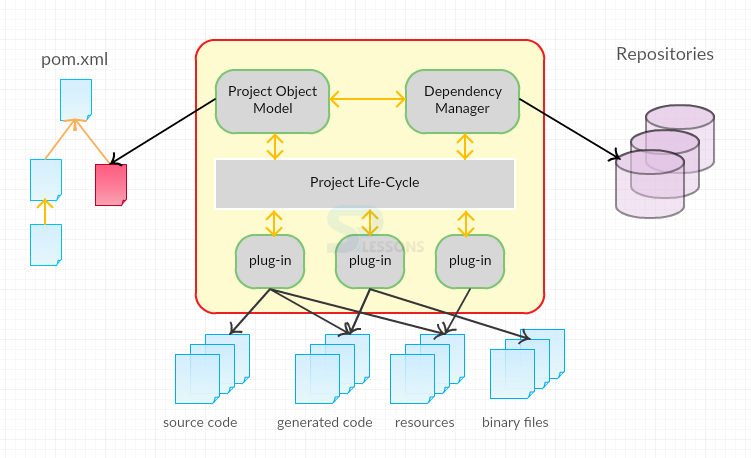 Introduction
Introduction
Maven is a documentation tool i.e., accumulator of knowledge, which is associated with the Apache Software foundation. It can simplify the project management and develops the framework of build life cycle. Maven helps developers to understand how to do projects when there are multiple projects. The following concepts will be discussed in Maven Introduction chapter:
- Maven History
- Functions
- Build Tool
 Description
Description
Initially, each project will have a directory layout and there is no uniform way to manage software projects around the globe.
Later, Maven was developed by Takar’s Jason van Zyl and released in 2004. When working on the Jakarta Turbine project, there are several projects with different ANT files and JAR’s are checked into CVS. So, Maven is used to define the project information easily and share JAR files among various projects. The latest version of Maven is 3.0, which was released in 2010.
 Description
Description
The functions of Apache Maven include:
- Develop a uniform build system.
- Empower the project information.
- Make the build process easy.
- Allow to migrate to new feature
- Giving guidelines to the project development.
- Reporting about the projects.
 Description
Description
Build tools are the programs that convert the source code to executable applications(compiling, linking and packing the code) by automating. In software development, build automation is very important as it scripts a wide variety of tasks. Currently, the following Build tools are available:
- Java – ANT, Maven, Gradle
- C# - Ms.Build
- .Net – NANT
 Key Points
Key Points
- Maven is a documentation build tool.
- Maven gives guidelines for project development.
- Build tool converts the source code to executable application.




